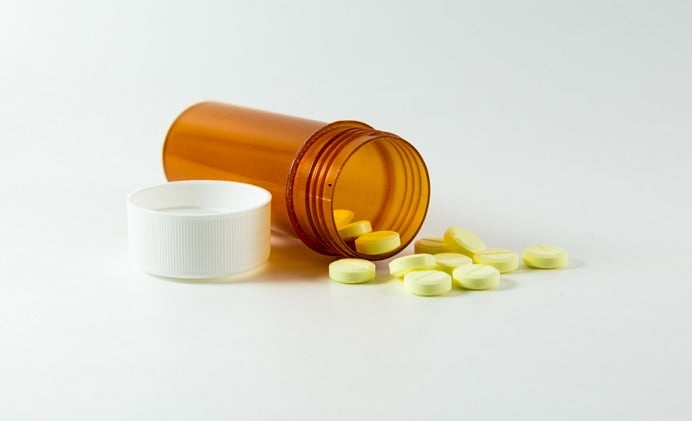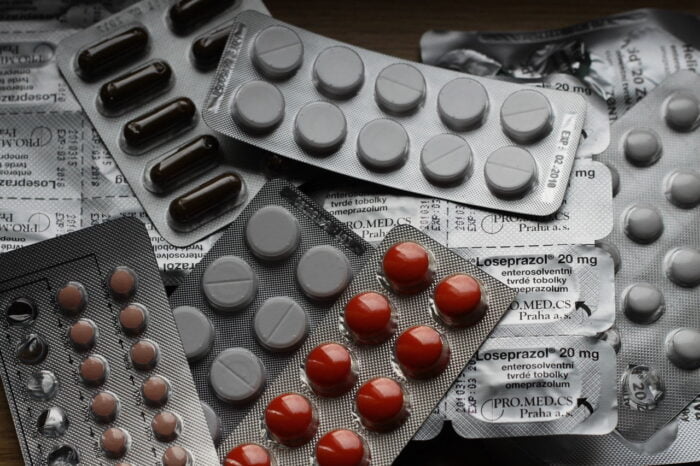- Home
- Addiction Detox
- Alcohol Detox
- Alcohol Withdrawal Symptoms
Alcohol Withdrawal Symptoms
Alcohol addiction can happen to anyone, and it is frightening for everyone involved.
In particular, if you try and quit cold turkey, the withdrawal symptoms can be very hard to manage.
Some of the withdrawal symptoms of alcohol can even be deadly, so it’s important that you’re aware of them and get medical help where possible.
How Can Someone Become Addicted To Alcohol?

There are a lot of reasons why someone can develop an addiction.
Some examples of this are:
- Trauma
- Loss of a loved one
- Genetics
- Job loss
- Peer pressure
However, this list is not exhaustive and there are plenty of other reasons why addiction may occur.
In 2020-2021, it was found that there were 76,740 people in the UK in treatment for alcohol addiction.
This is a shocking amount of people that are in treatment for such a substance abuse disorder.
What could be considered more shocking is that alcohol addiction treatment makes up 28% of addiction treatment within the UK.

So why are there so many people that struggle with alcohol addiction? Why does it make up the second-largest group for addiction treatment?
Alcohol is known to be an addictive substance and, due to it’s widespread availability and social acceptance, it can be very easy to get addicted.
One of the main reasons why people get addicted to alcohol is because it stimulates certain chemicals in the brain to make us feel good.
This drives people to use alcohol again, often in higher quantities as their tolerance increases and they seek the same pleasurable sensation.
From there, addiction can easily develop.
How Do You Know If You’re Addicted?

If you are worried that you or a loved one may have developed an alcohol addiction, there are various signs that may indicate this.
One of the main signs is an uncontrollable urge to drink alcohol consistently and in large quantities.
However, there are many more symptoms that can indicate you or another may have developed an addiction:
- Being secretive about your alcohol use
- Needing to drink more and more to feel “drunk”
- Financial problems
- Shaking or feeling feverish without alcohol
- Intense cravings without alcohol
- Weight fluctuations
- Changes in appetite
- Consistent gaps in memory
- Diarrhoea
- Constipation
- Intense headaches
If you’re concerned about a loved one having an alcohol addiction, you may want to look out for the above signs as well.
However, if you suspect a loved one is drinking heavily, you may wish to look out for the person creating consistent excuses to drink alcohol as well.
What’s The Difference Between A Hangover And Withdrawal?

A hangover tends to have less severe symptoms than withdrawals.
Hangover symptoms also usually last for a total of one – two days, whereas withdrawal symptoms can last up to seven days.
It should also be noted that you can develop a hangover from drinking small quantities of alcohol.
Withdrawal symptoms are developed from drinking larger quantities of alcohol over a longer period of time.
Symptoms of a hangover compared to symptoms of withdrawal are also very different.
Symptoms of a hangover are considered mild and include:
- Fatigue
- Dry mouth
- Vertigo
- Headaches
- Loss of appetite
Whereas symptoms of withdrawal tend to be much more extreme.
What Are The Symptoms Of Withdrawal?

Withdrawal from alcohol can be deadly, and as such it’s important to get medical help if you are struggling with alcohol addiction.
Of course, withdrawal is different for every person, but if you have been excessively drinking for quite some time in large quantities, you are at risk of having more serious symptoms.
These symptoms include:
- Insomnia
- Sweating
- Faster than average heart rate
- Vomiting
- Nausea
- Headaches
- Tremors/intense shaking
- Mood swings
- Anxiety
- Depression
It should also be noted that if you have been excessively drinking large amounts of alcohol for quite some time, you may also be at risk of death once you stop drinking.
Other Severe Side Effects Of Drinking Alcohol

It should be noted that some people who struggle with a drinking addiction are also at risk of developing various other problems.
Alcohol withdrawal can be severe and as such, it needs to happen somewhere that you can be evaluated and cared for.
Delirium Tremens

Delirium tremens is one of the serious problems that someone with an alcohol addiction can develop once they go through withdrawal.
Delirium tremens is life-threatening and it is the most severe form of alcohol withdrawal.
Whilst it does not happen to everyone who has had a drinking addiction, there are some things that can put you more at risk:
- If you’ve been through withdrawal before.
- If you’ve been drinking very heavily for some time.
- If you’ve got poor general health.
- If you’ve drunk a great deal before you’ve started withdrawal.
If you develop delirium tremens, then you are at risk of the following symptoms:
- Seizures
- Loss of consciousness
- Sweating
- Vomiting
- Nausea
- Feeling aggressive
- Hallucinations
- Feeling delirious
- Death
If a medical team believes that you could be at risk of delirium tremens, they will ensure that you have 24/7 support.
In addition to the above, a medical team will be able to prescribe you some medications to make the withdrawal period easier and safer.
Acute Alcohol Withdrawal Syndrome

This withdrawal illness is quite different to delirium tremens, this is because it mostly impacts people who are only mildly dependent on alcohol.
However, the symptoms can be just as serious and it’s important to seek medical advice either way.
At rehab-recovery, our experts will perform an assessment to see if you’re at risk of this.
With acute alcohol withdrawal syndrome, you may experience the following issues:
- Anxiety
- Insomnia
- Shakes
However, some people experience more severe symptoms such as seizures, rapid breathing and this illness, which can even progress to delirium tremens as well.
As a result of the above, it’s important to get assessed and speak to medical professionals to ensure that the withdrawal process goes safely.
Wernicke-Korsakoff Syndrome

This is not something that happens because of alcohol withdrawal, but it can happen with it if you have had a poor diet during the time you’ve been drinking.
With the shock of the withdrawal combined with a poor diet, it can result in developing this syndrome.
The symptoms of this can be equally as disturbing, which include:
- Disorientation
- Delirium
- Confusion
- Memory issues
- Coma
- Death
As a result of the severity of this illness, doctors should monitor your recovery and ensure that you undergo a safe detoxification.
Why Can Alcohol Withdrawal Be So Severe?

Alcohol is known to be a substance that is a depressant, which means that it has a calming effect on your brain.
In particular, alcohol affects your central nervous system in the brain, slowing how it functions.
If you have been drinking for quite some time, the central nervous system will be used to the alcohol and the impact it has on your brain.
Once you take away alcohol completely, your central nervous system will then become overwhelmed, which then leads to the symptoms of withdrawal.
This is why it’s so important to have an assessment and medical intervention, as the level of alcohol your body is accustomed to will determine how severe your withdrawal will be
How Easy Is It To Recognize Alcohol Withdrawal?

When you choose to go through treatment with Rehab Recovery, our expert staff will gauge the severity of your alcohol use.
This is because after you first reach out to us, we will take you through an assessment.
During this time, we will look into how much alcohol you consume and whether you’re at risk of more severe withdrawal symptoms.
It should be noted that our medical staff are experts.
As such, if you are at risk of a more severe alcohol withdrawal, we will make sure you have all the tools you need to make the process safe and easy.
What Are The Treatment Options For Withdrawal?

If you decide to go through treatment with Rehab Recovery, we will be able to connect you with various treatment options for withdrawal.
First, you will be assessed by one of our experts when you get in touch with us so that we can analyse the severity of your addiction.
Once the above has been completed, we will be able to arrange a detoxification period for you, where you may be prescribed medications to help you through withdrawal.
In addition to the above, at an inpatient facility you will have 24/7 support from expert medical staff to ensure that your withdrawal is a success.
There are various different medications that may be prescribed to help tackle different aspects of withdrawal.
Anti-Sickness Tablets

Should it be deemed that your alcohol addiction is not quite that severe, or if you have not been drinking very heavily, you may receive basic anti-sickness tablets.
These tablets will ensure that any nausea will pass more easily and your withdrawal will not be as sickly as it would otherwise.
In addition to this, the tablets may also be prescribed to stop any convulsions or shakes that you may experience during withdrawal.
Of course, you may still struggle with some of the other minor withdrawal symptoms, but medical staff and therapists will be on hand to talk you through this stage.
Anti-depressants

Anti-depressants may be prescribed alongside anti-sickness tablets.
If you have not been drinking heavily and consistently, for a long period of time, then the more serious medications most likely will not be needed.
However, if you have an alcohol addiction, your withdrawal may result in feeling low, depressed and possibly having intrusive thoughts.
Whilst an inpatient will have access to support staff and therapists, a doctor may think that it is best for you to have medication to help combat this as well.
Naltrexone

Naltrexone is used for more severe alcohol use, and it is very effective when used during the detoxification process.
It should be noted, that if you come to us and are struggling with more than one addiction, our doctors may not prescribe this.
This is because if you have alcohol alongside any additional substances in your body then this may result in vomiting.
Our aim at Rehab Recovery is to help ensure that your detoxification and withdrawal process is as smooth as possible.
Therefore, we will try to minimize any unpleasant side effects during your detox as thoroughly as we can.
Naltrexone is a popular method of treating withdrawal symptoms of alcohol, however.
This is because naltrexone stops you from feeling good when you drink, and you won’t feel anything at all.
Through this, it will help you to resist cravings, as it will help reduce the appeal of alcohol altogether.
Disulfiram

Similar to Naltrexone, disulfiram will not treat your withdrawal of alcohol, but instead will make drinking unappealing for you and therefore reduce the desire to drink.
This medication is a little different from naltrexone – instead of blocking pleasure from drinking alcohol, it will make the experience unpleasant.
When you drink, you will instead become ill if you are prescribed this medication.
It is often used to ensure that you will build up a dislike of alcohol that will come to replace your cravings.
They include:
- Headaches
- Feeling weak
- Anxiety
- Nausea
- Intense sweating
In turn, this will reduce your desire to drink alcohol.
Acamprosate

This particular medication will most likely be used during withdrawal treatment, especially if you have been drinking heavily for quite some time.
Acamprosate will not stop how you feel when you drink, instead it will stop your dependence on alcohol.
Whilst the other medication you might be prescribed will reduce the pleasure of drinking alcohol, this instead directly treats withdrawal.
As mentioned previously, when you drink very heavily and then stop suddenly, your central nervous system can become overwhelmed.
Acamprosate will help calm down your central nervous system and help your brain work more normally, reducing the more severe symptoms that withdrawal can cause.
Which Should I Take?

It’s important that you do not take any of these medications unless you are under explicit medical guidance.
Inpatient facilities or hospitals are the best places to undergo the withdrawal and detoxification process.
This is so that you can be monitored 24/7 should any issues arise.
I’m Scared To Get Treatment And Help

Although recovery can be scary, and withdrawal from alcohol can also look scary, that doesn’t mean it’s too late for you to get help.
As long as your withdrawal symptoms can be monitored and observed by healthcare professionals, then you are likely to come out of withdrawal unscathed.
You will have the greatest chance of success if you complete inpatient treatment, particularly if your facility of choice provides a comprehensive aftercare package to ensure you have all the help you need after your time in rehab.
If you’re looking to beat alcohol addiction for good, get help today and begin your road to recovery.


